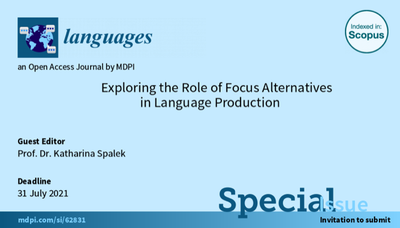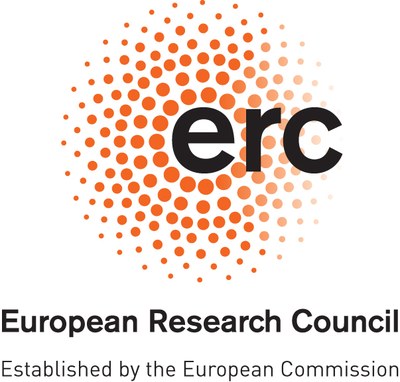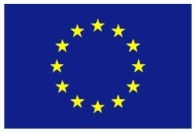Focus alternatives in the human mind: Retrieval, Representation and Recall (FAHMRRR)
We investigate how humans process meaning that goes beyond the individual words in an utterance, concentrating on the processing of focus alternatives.
The utterances „Claire likes LINGUISTICS“ (with the main stress on LINGUISTICS) and „CLAIRE likes linguistics“ (with stress on CLAIRE) mean the same, but they have a different focus structure. This becomes apparent when trying to continue these sentences in a meaningful way. A good continuation for “Claire likes LINGUISTICS…” could be “…but not literary sciences”, whereas “CLAIRE likes linguistics…” could be followed by “…Steve, however, hates it”. ‘Linguistics and literary sciences’ and ‘Claire and Steve’ are so-called focus alternatives. We already know that focus alternatives play an important role during utterance comprehension: When we perceive a focused element, its alternatives are also activated in our mind; for example, we are faster to recognise them in a reading task.
The project FAHMRRR addresses three main questions: 1. How are focus alternatives retrieved from our memory for words, the mental lexicon? 2. How are focus alternatives represented in the brain? 3. What is the impact of focus alternatives for remembering (recalling) heard or read utterances? Additionally, we are also interested in describing and explaining individual differences in the processing of focus alternatives.
In our project, we use a variety of experimental methods. That is, speakers of German solve language tasks (mostly computer based), and we measure how quickly and accurately they can solve these tasks. Sometimes, we also measure their brain waves (with electroencephalography, EEG for short) or the involvement of certain brain areas in the language tasks (with functional magnetic resonance imaging, fMRI for short).
This project has received funding from the European Union's Horizon 2020 research and innovation programme under grant agreement No GAP-677742 during a project term of 5 years from 2016 to 2021.
News
+++ Katharina Spalek is currently editing a special issue on the topic "Exploring the Role of Focus Alternatives in Language Production" in Languages. +++



